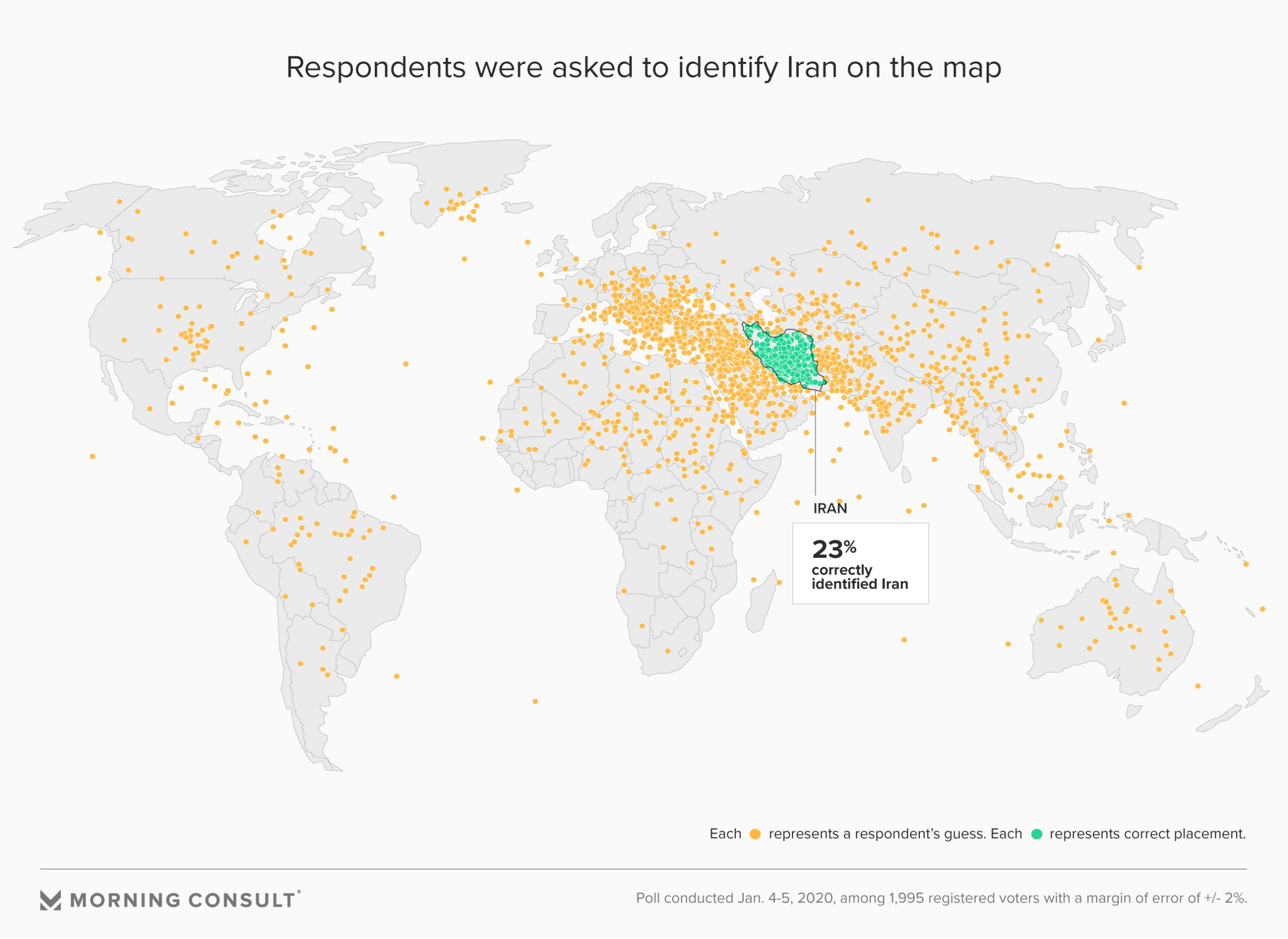(Pretending to) believe the worst?
Morning Consult and Politico run a survey where they asked registered US voters to point Iran out on a map. About a quarter could. Here are the complete results
As you will notice, there are dots everywhere. Morning Consult didn’t go in for any grandiose interpretations; they just presented the proportion of respondents getting the answer correct. Other people were less restrained. There was much wailing and gnashing of teeth over this map, on Twitter, but also at other media outlets. For example, Rashaan Ayesh wrote at Axios
While the Middle East saw definite clustering, some respondents believed — among dozens of wild responses — that Iran was located in:
- The U.S.
- Canada
- Spain
- Russia
- Brazil
- Australia
- The middle of the Atlantic Ocean
The claim that some respondents believed Iran to be in the US or the middle of the Atlantic ocean is worrying to me. I can’t see how a sensible journalist could possibly state as a fact that someone had a belief like that based just on the incredibly flimsy evidence that there’s a dot there on the map. I’d want to at least have someone explicit claim that they thought Iran was in the middle of the ocean, and ideally have follow-up questions asked about where they think Iranians keep their mosques and carpets and where they grow their rice and barberries and pomegranates and walnuts and so on.
It’s a well-known phenomenon that people don’t always give the answers you want on surveys. Scott Alexander has written about the ‘Lizard-man constant’, and that’s even before you give people a clicky interactive map to play with. It’s barely conceivable — no, actually it isn’t, but let’s pretend it is — that some people think that large continent on the upper left of the map is the Middle East, or recognise it as North America but believe Iran is in the US.
It seems much more likely to me, though, that
- they don’t know where Iran is and would rather give an obviously wrong answer than look as if they’re trying
- they clicked wrong on the map, because interactive maps are actually kind of a pain to use, especially on a phone.
- they think having heard of Iraan, Texas (pronounced Ira-an), or Persia, Iowa, will make them look clever.
- they want to mess up the survey because they hate polling or for political reasons or because they’re having a bad day
The next question, of course, is how much it matters that the majority of US voters couldn’t find Iran on a map. Iran is relatively easy, as countries go — I knew that it had a coastline on the Persian Gulf and that it wasn’t on the Arabian Peninsula, and Iran is big enough that this is sufficient. But suppose I thought it was where Iraq is, or Syria, as many people did. Should have an impact on my political views (assuming I’m in the US)? It’s not clear that it should. The potential ability of Iran to close the Straits of Hormuz (and the Doha and Dubai airports) does depend on its location, but the question of whether the US was justified in killing Qasem Soleimani or threatening to bomb Iranian cultural sites doesn’t seem affected.
Thomas Lumley (@tslumley) is Professor of Biostatistics at the University of Auckland. His research interests include semiparametric models, survey sampling, statistical computing, foundations of statistics, and whatever methodological problems his medical collaborators come up with. He also blogs at Biased and Inefficient See all posts by Thomas Lumley »
